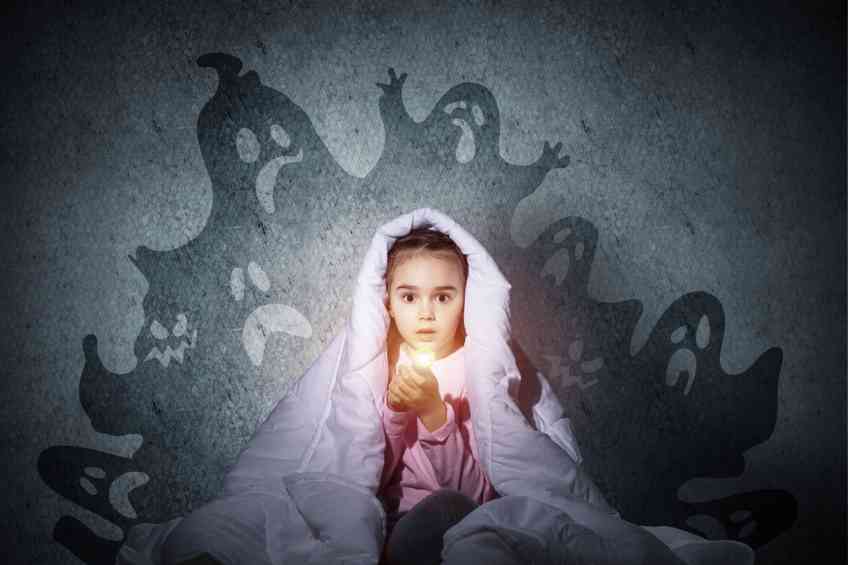By John Hand –
Between a monster in a closet, a dark room and those ever-creepy clowns, there is plenty to be fearful of as a child. Many of these fears are a normal part of a growing imagination. However, these qualms can transform into serious phobias when an exaggerated, irrational, extreme response to a fear prevents a child from functioning in a normal manner, according to Psychology Today. Proper recognition and treatment of a child’s phobia are essential because left untreated a childhood phobia can bleed into a disabling adulthood issue.
It is important to understand fears that are normal for children—and there are plenty of traditional worries for kids. Younger children between the ages of two-to-four are likely to be afraid of animals, strangers and separation. Children four-to-six will typically fear supernatural beings and the dark. At ages seven-to-ten, it is common to dislike natural weather events like a thunderstorm and fear of death. As kids start going to school from ages ten-to-twelve a fear of not pleasing parents or teachers becomes normal. Finally, in the teenage years of twelve-to-fifteen, social anxiety becomes more prevalent, as well as fear of being embarrassed in public.
Stanford Medicine notes that there are also various phobias that children face. One basic phobia includes a child’s anxiety spiking due to specific objects or situations like being high up, seeing blood or going to the doctor. These disorders can lead to panic attacks that include lightheadedness, shaking or accelerated heartbeats. Specific childhood phobias include agoraphobia, a fear of open spaces; social anxiety disorder, a fear of being in mixed company; and separation anxiety disorder, which occurs when a child’s fears spike when separated from a parent figure.
Childhood Fears
The exact cause of phobias in childhood is unknown. But there are several factors that can contribute to developing them, including environmental situations and genetics. It is more typical, for example, for a child to develop a specific phobia if a family member has the same one, one study reported.
“Specific phobias begin early in life and persist over years or decades and are associated with increased risk of various other mental disorders,” this research effort concluded.
This is often seen with the issue of social anxiety, reported Dr. Joseph Gonzalez-Heydrich, a physician attached to Boston Children’s Hospital. “The rate in children is thought to be 0.5 percent to 4 percent. In adolescents, it may be as high as 7 percent. It’s not known why certain children are affected, but it’s thought that it may be hereditary. Parents with panic disorder, for example, have a higher rate of children who have a social anxiety disorder.”
The carry-on impact of childhood phobias to adulthood is why it is so important to help children overcome their fears early on.
Boston Children’s Hospital notes that talk therapy is one treatment option. This approach starts with talking with the child about their exact fears and anxieties are and when they occur. Talk, however, shouldn’t unintentionally reinforce fears, according to the Cleveland Clinic. This means avoiding doing things like checking for monsters in the closet or under the bed. Instead, it is critical to acknowledge the fear and discount it.
The ultimate aim to is build up a child’s confidence with positive reinforcement and then stick to a routine. Some phobia issues are obviously more serious and may require bringing in a child psychologist or a professional psychiatrist for help. Guidance on where to turn should be available from a family physician or even a child’s school.
Even though phobias are common—nearly 10 percent of the population will deal with at least one during their lifetime—treatment is important as early as possible. Dismiss these concerns and a little fear can turn into a scary problem.












